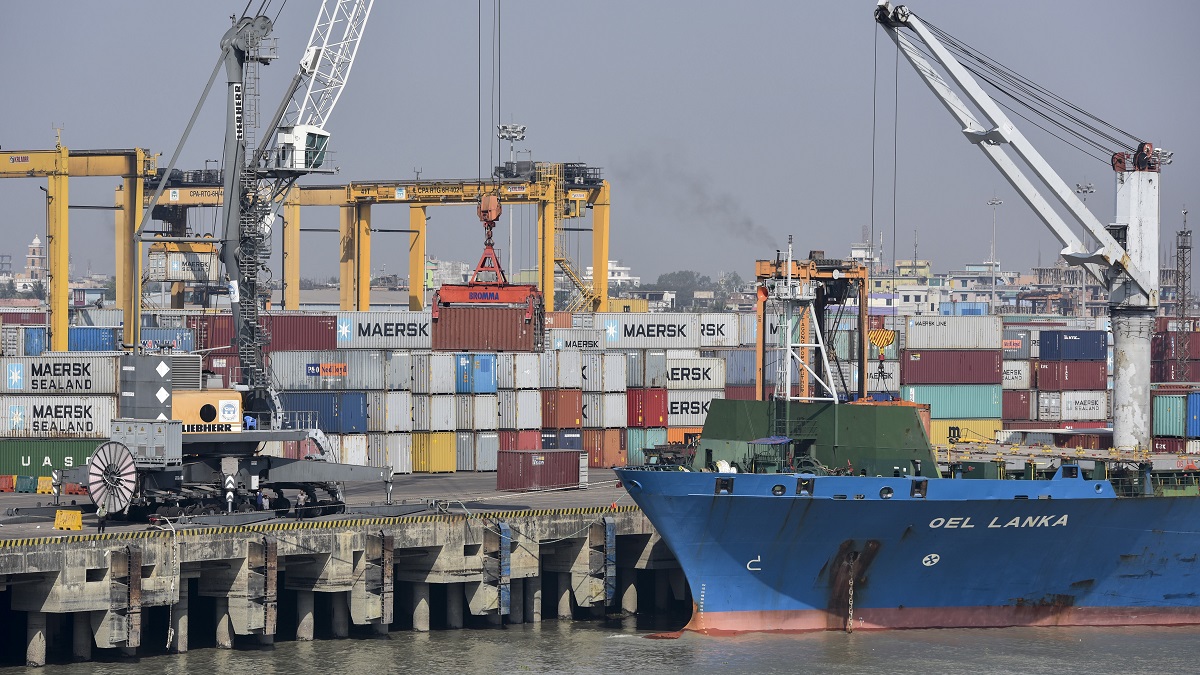New report shows how UNCTAD’s customs automation programme, ASYCUDA, helps developing nations increase customs revenues while reducing the time and cost of trade.
Shutterstock/Hafiz Johari | The Chittagong Port, Bangladesh.
UNCTAD has released a new compendium featuring the experiences of 22 countries participating in its Automated System for Customs Data (ASYCUDA) programme.
ASYCUDA – UNCTAD’s largest technical assistance programme – supports customs authorities in over 100 countries to expedite the clearance of goods and ease trade.
The report, the third edition in a series of ASYCUDA case studies, highlights the programme’s success in enabling digital connectivity for inclusive trade. See the 2020 and 2019 editions.
"The COVID-19 pandemic has intensified the digitization of trade processes and procedures,” said Shamika N. Sirimanne, director of technology and logistics at UNCTAD.
“Country experiences during these trying times illustrate how ASYCUDA has helped user countries to grow their international trading activities as they reignite their economies,” Ms. Sirimanne added.
Higher customs revenues, shorter clearance times
For example, in Bangladesh, customs revenues increased by 50% between 2017 and 2021, from $6.43 billion to $9.62 billion. And 73% of imports were cleared within three days in 2021.
In Bosnia and Herzegovina, import transactions rose by 32% between 2020 and 2021.
In Burundi, an ASYCUDA-based module enabled the health ministry to monitor and control the international trade of medicines and medical equipment, enabling the processing of 71% of medical imports in less than 24 hours in 2021.
In Djibouti, customs revenues have shot up by 95% – from $116 million to $226 million – in the past decade thanks to ASYCUDA. The country cleared 94% of goods in transit in less than 24 hours in 2021.
In Dominica, 65% of commercial imports are cleared by customs authorities within 24 hours.
And in Papua New Guinea, customs authorities reduced clearance times from seven days to two hours in 2021.
ASYCUDA helps countries ease trade and boost revenues
Automated data exchange, better communication
The report shows how user countries have benefited from the automated exchange of standardized trade information and data, thanks to ASYCUDA.
It outlines how ASYCUDA bolsters communication and coordinated intervention among trade stakeholders, including partner government agencies.
With new IT-based tools, the programme enables countries to modernize customs management systems and generate much-needed up-to-date trade data.
To complement its technological solutions, the programme delivers capacity-building activities to ensure system sustainability and ownership by user countries, and alignment of their domestic trade regulations with international norms.
The report explains how ASYCUDA empowers vulnerable economies – least developed countries, landlocked developing countries and small island developing states – to improve efficiency, transparency, accountability and risk management.
New solution to connect systems
To harmonize and facilitate the integration and exchange of trade information, ASYCUDA is piloting ASYHUB, an open standardized platform for processing and integrating data between the programme and third-party systems.
This solution will offer a smart framework to efficiently interconnect government systems and applications.


